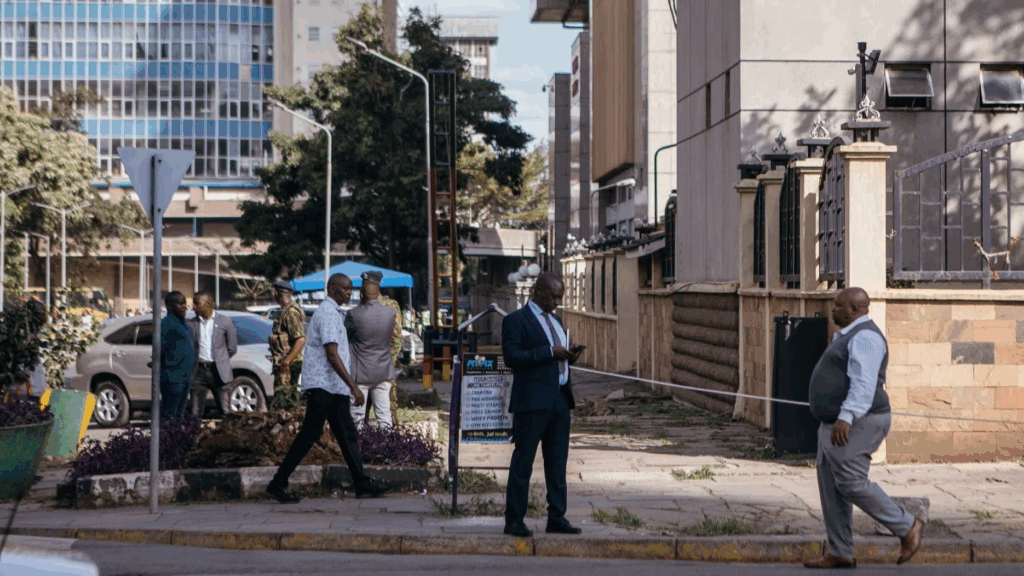- As Africa gets just $30bn of required $277bn
- Continent needs $2.8trn 2020-2030 to implement NDCs under Paris agreement
A new study by FSD Africa in partnership with UMOA-Titre (UT) in which Genesis Analytics was commissioned, has found that deploying Development Impact and Social Impact bonds can significantly unlock climate finance flows to address climate change challenges in Africa.
The impact bonds recommended as financial instruments for challenges facing Saint-Louis include, Social Impact Bonds (SIBs), Development Impact Bonds (DIBs), or Environmental Impact Bonds (EIBs).
Impact bonds such as social impact bonds (SIBs), also known as social bonds or social benefit goods, are a type of financial security that offers capital to the public sector to fund projects that will create better social outcomes, and lead to savings. The Centre for Global Development (CGD) says these bonds are a new development in finance.
According to Climate Policy Initiative (CPI) estimates, Africa requires $277 billion annually to implement its Nationally Determined Contributions (NDCs) and meet the 2030 climate goals. Published with the title: “Landscape of Climate Finance in Africa,” CPI indicates that, so far, Africa’s annual climate finance flows stand at only $30 billion.
The United Nations Framework Convention on Climate Change (UNFCCC) in 2021 said this gap is likely to get even wider as countries often underestimate their financial needs, especially in relation to adaptation, due to data and methodological problems in costing their NDCs. It warned that time is of the essence; delaying action will cost the continent more in the future.
 The FSD Africa – UMOA-Titre study found that both the physical and socio-economic characteristics in Saint Louis make it vulnerable to climate change. Numerous government and donor-led resilience interventions have been implemented in the area. However, there has been little participation by the private sector at scale. Also, approximately 80,000 of people of the coastal city live in densely populated fishing neighbourhoods, high-risk zones which are constantly under attack from flooding and coastal erosion. Between 2019 and 2020 more than 2,000 people, mostly inhabitants of Saint-Louis’ northern fishing district of Guet N’dar lost their homes due to the rising sea levels. The World Bank estimated that 10,000-15,000 people in the city are either already displaced or live within 20 metres of these high-risk zones. Also, climate change continues to cause rising sea levels, heavier rainfall and higher temperatures in the city, thereby impacting the livelihoods of the local people.
The FSD Africa – UMOA-Titre study found that both the physical and socio-economic characteristics in Saint Louis make it vulnerable to climate change. Numerous government and donor-led resilience interventions have been implemented in the area. However, there has been little participation by the private sector at scale. Also, approximately 80,000 of people of the coastal city live in densely populated fishing neighbourhoods, high-risk zones which are constantly under attack from flooding and coastal erosion. Between 2019 and 2020 more than 2,000 people, mostly inhabitants of Saint-Louis’ northern fishing district of Guet N’dar lost their homes due to the rising sea levels. The World Bank estimated that 10,000-15,000 people in the city are either already displaced or live within 20 metres of these high-risk zones. Also, climate change continues to cause rising sea levels, heavier rainfall and higher temperatures in the city, thereby impacting the livelihoods of the local people.
Saint-Louis is the former capital of Senegal and a UNESCO World Heritage site since the year 2000. The city benefits from programmes such as the Safeguard and Enhancement Plan (PSMV), a key legal instrument for the protection of the site adopted in 2008 by the government of Senegal. However, it still faces the effects of climate change with the sea levels on the West African coast rising between 3.5 and 4.0 millimetres annually, which poses an existential threat.
With the new study, the city has a big chance to capture a greater portion of the international climate finance flows available globally, through the deployment of impact bonds.
Reproducing Saint Louis across Africa
It follows that African national governments can successfully reproduce the Saint Louis research success across the continent. The study is due for launch during the forthcoming West African Economic and Monetary Union (WAEMU) Government Securities Markets meetings in Dakar, Senegal.
There is a continental refrain of limited finance to fund climate change resilience and adaptation programmes. It was to deal with these challenges that the Saint Louis study appears to have unveiled solutions such as involving the private sector through impact bonds to widen the capital pool for various projects.
Evans Osano, the director of capital markets at FSD Africa, emphasised that climate action requires significant financial investments.
“Africa requires USD 2.8 trillion between 2020-2030 to implement its Nationally Determined Contributions under the Paris Agreement. This is the cost of the continent’s contribution to limiting warming to 1.5°C and addressing the biggest impacts of climate change. However, annual climate finance flows in Africa stand at only USD 30 billion with private sector contribution at only 14%. This study is critical in identifying opportunities to attract climate finance flows in addressing climate challenges,” Osano said.
The new study highlights the opportunities to tackle flooding, coastal erosion, heavy rains, land and ecosystem degradation, fishery decline, and poor waste management, to improve living conditions for the communities living in Saint-Louis. Funding for the study was provided by the UK government through the Foreign Commonwealth and Development Office (FCDO).
Read original article



